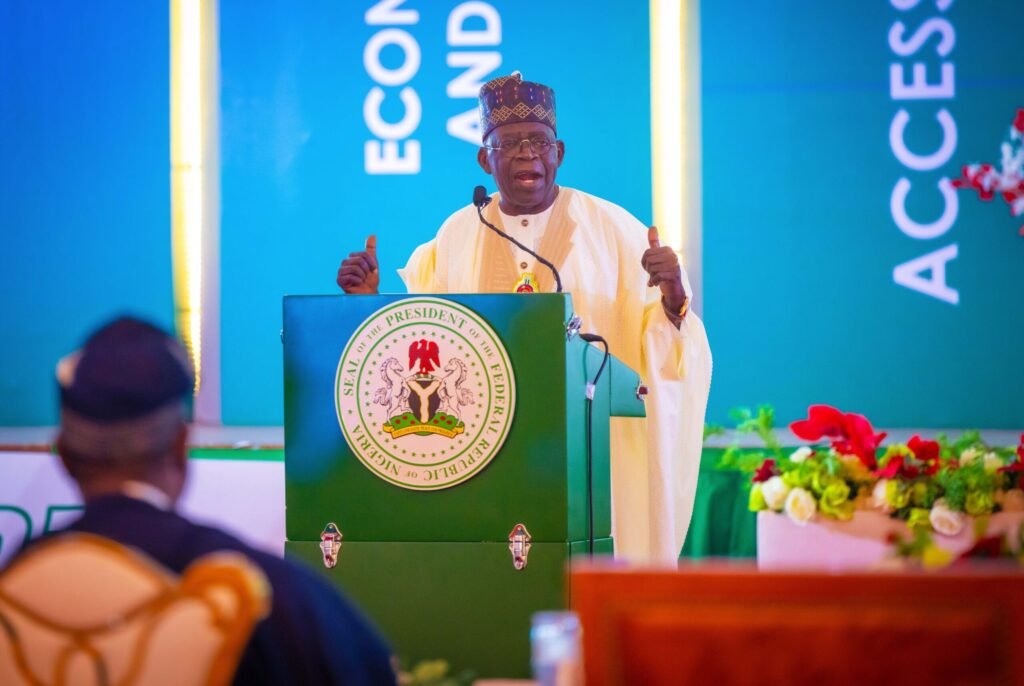In Abuja and Lagos, the sense of opportunity is palpable. For a country long defined by oil exports and traditional sectors, the narrative is shifting: digital technology is fast becoming the new frontier. Nigeria, once driven by black-gold, now has the chance to lead a transformational chapter built on data, connectivity and artificial intelligence (AI).
According to the latest research, Africa stands to gain a remarkable US$2.9 trillion in economic value by 2030 through the deployment of AI, equivalent to roughly a 3 per cent annual boost in GDP for the continent.
For Nigeria specifically—home to nearly 25 per cent of the continent’s startup funding in 2021—this isn’t just some distant projection. It is a call to action to turn digital ambition into reality.
Yet the path is not straightforward. Infrastructure gaps, skills shortages, regulatory hurdles and the need for inclusive growth are still very much part of the landscape.

Table of Contents
Blueprint for Growth: From Strategy to Scale
In April 2025, Nigeria unveiled its national AI roadmap, the National AI Strategy (NAIS). The 70-page document outlines how the country plans to build the infrastructure, train the talent and govern the ethics required to reap the digital dividend. The strategy is ambitious: to train millions via the “3 Million Technical Talent” (3MTT) programme by 2027, build public-private alliances, launch sandbox environments and weave in the Nigerian diaspora as collaborators.
Minister of Communications, Innovation and Digital Economy, Bosun Tijani, put it plainly: “We must unite stakeholders to maximise AI’s potential, from telecoms to agriculture, every sector needs champions.”
But strategy is one thing—execution is another. Comparable African nations are also moving in tandem:
- Egypt has repositioned its 2025–2030 AI strategy, targeting a 7.7 per cent ICT-to-GDP share, training 30,000 professionals and spawning 250 new AI startups.
- Rwanda, Benin, Mauritius, Kenya and South Africa each have their own digital or AI frameworks in motion — highlighting the continental momentum.
For Nigeria, the potential is vast: AI tools could optimise agricultural yields, cut waste in farming (where over 60 per cent of Africans depend on agriculture), lift millions out of poverty and create hundreds of thousands of jobs.

Barriers: Why Ambition Still Faces Headwinds
No one denies the promise, but the obstacles are real—and immediate. First is infrastructure: in much of sub-Saharan Africa, broadband penetration remains stubbornly low, and computing power—especially for AI workloads—is scarce. The United Nations estimates that only 5 per cent of Africa’s AI talent currently has access to adequate computational resources.
Then comes the usage gap. While network coverage has improved, many citizens and businesses still don’t take full advantage of mobile internet access due to cost, device scarcity or limited skills. According to the GSMA, although 58 per cent of unconnected Africans already live within mobile broadband coverage, adoption is being slowed by affordability and literacy issues.
Data rights and regulation also matter. Nearly 76 per cent of African countries now have data-protection laws—but enforcement and harmonisation remain uneven. Governance frameworks are essential for trust and widespread adoption.
On the talent side, Nigeria’s diaspora-connect initiative is one clever move—but scaling digital skills across the length and breadth of the country will take time, investment and follow-through.
From Oil to Algorithms: What Nigeria Could Become
Imagine a Nigeria where Lagos-based fintechs export AI-driven mobile apps across the region, Abuja is home to diagnostics platforms analysing health data, and rural farmers use machine-learning tools to optimise crop yields. That scenario is not fantasy—it is the outcome envisaged by the NAIS.
In effect, Nigeria could shift its economic anchor from crude oil to digital value-creation—and that matters not just for revenue, but for inclusive growth. By adopting a phased approach (short-term policy alignment by 2026, followed by collaborative projects like climate-resilient farming), Nigeria and partner countries can leverage their youth bulge (Africa will account for 42 per cent of global youth by 2030) as a leap-frogging advantage.
To make it happen:
- Telecoms and data-centre investment must accelerate.
- Device affordability must rise—smartphones remain out of reach for too many.
- Skills development must reach beyond urban hubs to rural communities.
- Policies must be inclusive so that women and marginalised groups are part of the digital economy.
- Collaboration between the government, the private sector, academia and international partners must deepen.
If Nigeria gets this right, the prize is enormous.

Conclusion
Nigeria stands on the brink of a digital transformation that could reshape its economic future—not just for its elite tech hubs, but for every region, every community, every aspiring entrepreneur. The roadmap is there; the potential is global; the challenge is now execution. With bold investment and inclusive commitment, Nigeria and fellow African nations can truly turn digital ambition into a multitrillion-dollar reality.
Join Our Social Media Channels:
WhatsApp: NaijaEyes
Facebook: NaijaEyes
Twitter: NaijaEyes
Instagram: NaijaEyes
TikTok: NaijaEyes





